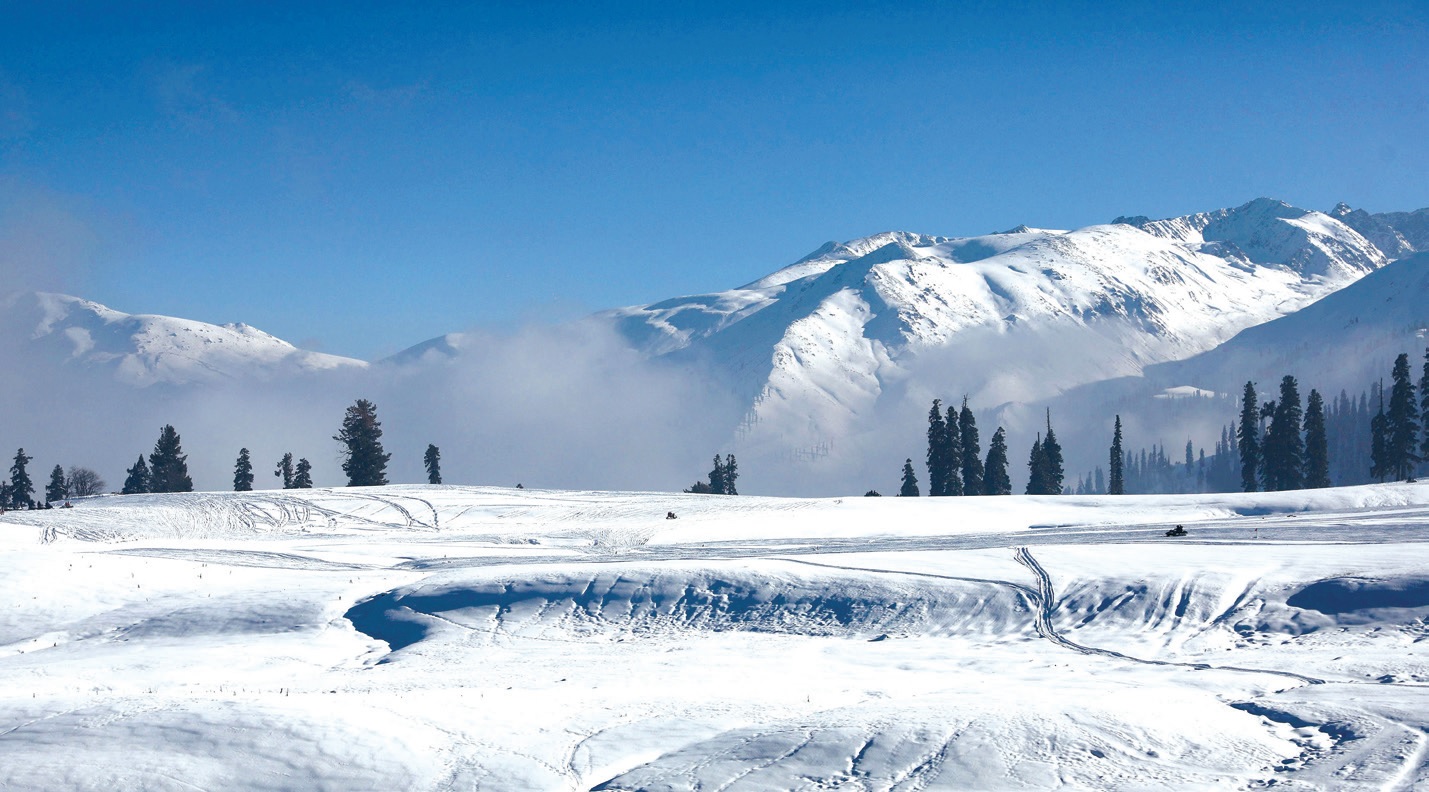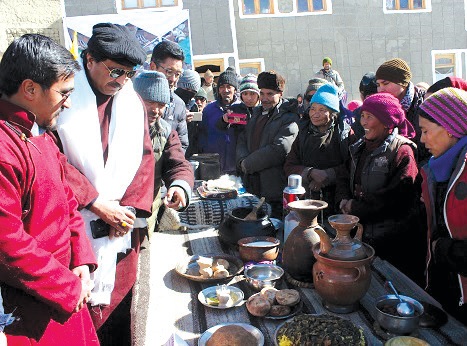Over the past several years, Kashmir is witnessing several changes in climatic conditions. The changes such as Fluctuating temperatures, Glacial retreat or early melting of snow are becoming rising concerns among experts and environmentalists who attribute all these phenomena to the impact of global warming ,
Senior Assistant Professor Department of Geo-informatics, University of Kashmir, Dr Irfan Rashid is of the opinion that Kashmir is witnessing snow less Chillai Kalans ( the harshest period of winter season) and high temperatures in winters from the past so many years.
“Last year, the temperature exacerbated not only in the Himalayas but in the entire world. The North Hemisphere reported the above normal temperatures,” he said.
Irfan said this year in India with specific reference to the Himalayas “we are witnessing very high temperatures.”
“Last year we witnessed landslides in Kashmir as well as in Ladakh region which damaged infrastructure. These were also reported in the entire Himalayas. This year also the frequency of landslides may increase in alpine areas of Kashmir, Ladakh and Jammu and northwestern frontier zones also,” he said.
Irfan said last year the magnitude of such events was not that high as these were medium-scale events.
“There could be devastating events also. This year with the early warming the snow melted early in Chillai Kalan in Kashmir. When the snow melts early it will definitely affect agriculture, horticulture, hydropower generation which are the key sectors of the economy in the valley,” he said.
“When there is no water it is difficult to sustain paddy, maize and other agricultural crops. There would also be a decrease in the flow of water in streams in upcoming summers if normal conditions do not prevail,” he said.
Irfan says that though the places like Gulmarg and Pahalgam recorded snowfall however it was not the way it used to be in the past.
“This year there is less snow. With added temperatures in March it will cause early melting of snow and the streams that solely depend on glaciers and snow there will be less water in streams in summer,” Irfan said.
Irfan said in future, the water-dependent economy like hydropower projects would be affected. “Many people are turning their paddy land to orchards. The melting of glaciers will also affect mountain tourism,” he said.
The expert suggested that locally there is a need to plan measures to be ready for the future.
“Efficient public transport is one of such measures that can save the environment and glaciers. Government efforts are also important in this regard,” he said.
Ajaz Rasool, hydraulic engineering expert and environmentalist said that a noticeable rise was being witnessed in temperatures in Kashmir this year. He said that February witnessed record rise in maximum temperature while the change was due to the emission of fossil fuels in developed countries.
“The atmosphere has got super loaded with fossil fuels and disastrous gases. Which has resulted in global warming,” he said.
The experts said that Global warming is a world phenomenon while the emission of gases from industries and fossil fuels across developed countries was responsible for warming up the globe.
“Many countries have joined the G20 and want to work on it by 2030. If they work on the commitments then better things will prevail. They can’t wipe it out immediately. If the situation on the ground continues like this then there would be further periods of global warming and climate change,” Aijaz Rasool said.
“The weather pattern is also changing and it is changing everything. We would either see extremes hot weather or extremes cold weather. This change has caused storms in the United States and London in the recent past,” he said.
Rasool said when there is fluctuation in temperature it would go up and down. “Sometimes there would be evaporation and sometimes there would be more precipitation. Sometimes there would be scanty snowfall,” he said.
He said the glaciers are also receding and when there is no sustained winter , things might change. “Reformation of glaciers is not happening and the problem is getting aggravated and it will impact,” he said.
As per the expert, sudden flash floods or normal floods in several parts of J&K and India are the effects of global warming.
“It is the time to wake up and realise the issue. In 60 percent of the Himalayas there are no weather stations. It needs thorough study of weather and climate,” he said.
Rasool said the continuous global warming will also affect forests if not taken care of which may have adverse impacts on human health.
“There are certain regions where the temperature goes up to 50 degrees and life would be impossible due to extreme hot weather, forcing people to migrate. Climate change will affect all of us on a lower scale. It is our duty to take measures. Illegal mineral mining is happening and forests are also on a declining trend. We need to work at least to keep drinking water possible for the people,” he said.
Besides disaster, he said climate change will affect wetlands in Kashmir that were once pristine for its water and bird species , fish. “The wetlands also depend on the flow of streams. When there is no water, it will also affect the flora and fauna in these wetlands,” he said.
According to Aijaz Rasool there are many glaciers including Kolahoi Glacier, which has become the fastest-depleting glacier of the Himalayas.
“There is another glacier, Machoi glacier in Drass, its area has been lost by 29 percent from 1972 to 2019,” he said.
Similarly, Thajiwas a group of four glaciers in Sonmarg are also melting. “There is a place called Panchtarn near Amarnath base camp and there are five glaciers showing signs of retreat. Sheshnag glacier is also showing signs of retreat.
“All the glaciers in Kashmir are showing a sign of retreat due to the rise in temperature triggered by global warming and extreme pollution,” he said.
Director Indian Meteorological Centre Kashmir, Sonam Lotus said this year has been warmer and witnessed a rise in temperature in winter as compared to previous years, especially in February and March.
“This year Jammu and Kashmir received deficit snowfall. It is warm even today. The reason for being warm is that the frequency of the western disturbances has been less. There is no doubt that the temperature is fluctuating,” he said.
Lotus said this year Kashmir received below-normal snowfall and precipitation was low. “In coming days we are also expecting a rise in temperature in the valley,” he said.
“In previous years, we used to witness good snow in February and March months but this year that did not happen. This year we are witnessing early spring,” he said.
The director MeT also said in 2020, Kashmir witnessed a severe cold winter after 1986 and the night temperature touched minus 8. “We can’t attribute everything to global warming although global warming is happening. We need to curb it and control it,” he said.
Lotus said that this winter there was a huge difference between snowfall in Kashmir and snowfall that occured in Ladakh. “For example Kargil received good snow after four years,” he said.
Notably, temperatures in some parts of the country are touching 40 degrees Celsius. There are already concerns over the possibility of an intensely hot summer and extended heat waves. This year India recorded its hottest February since 1901.








